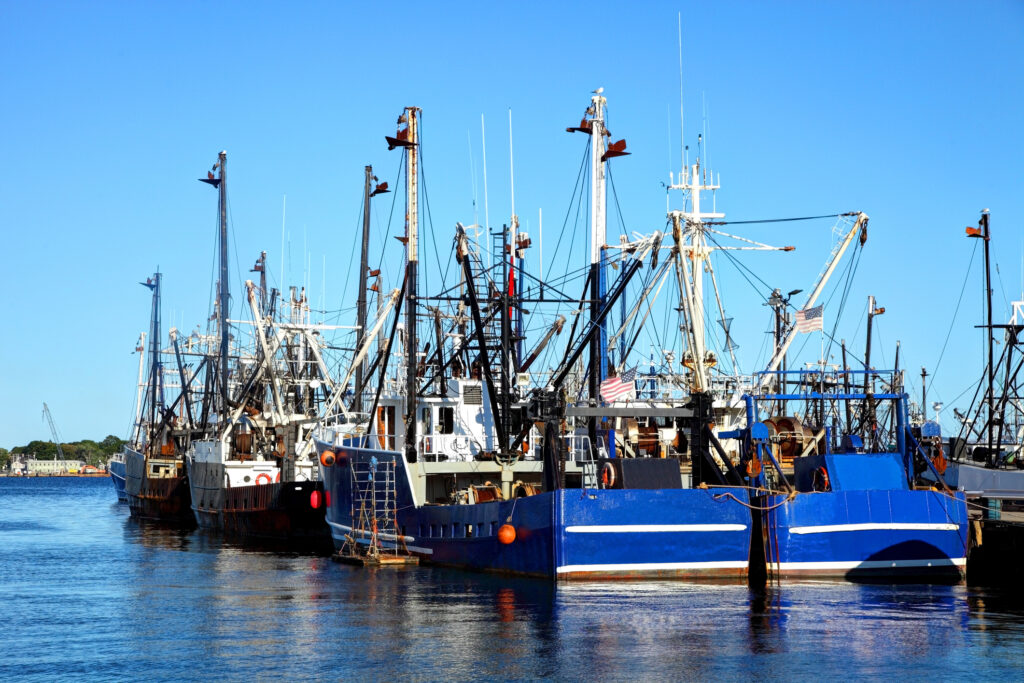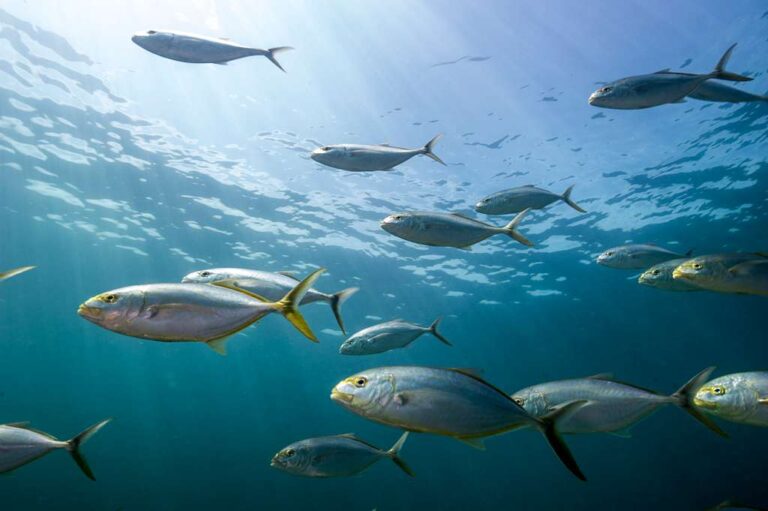STATUS
OF STOCKS
Every year, the National Oceanic and Atmospheric Administration (NOAA) releases the ‘“Status of the Stocks,” an annual report detailing the health of U.S. fisheries. Recent cuts to NOAA will make it harder to ensure fishing is sustainable and harder to protect vital habitats that fish need to reproduce and thrive.


If we are serious about maintaining the U.S.’s legacy as the world’s leader in managing sustainable fisheries, we must maintain the full capacity of NOAA to carry out its mission and provide the latest science and expertise that we need to keep fisheries from the brink.
Report Highlights
-
- Nearly a fifth of stocks remain overfished, but the good news is that the number of overfished stocks decreased: 47 fish stocks, or 18% of all known U.S. stocks, are considered overfished. This means the populations are too low to support long-term sustainable fishing.
- Critical fish stocks remain on the overfished list: Some of our most iconic stocks, including Atlantic cod, have remained on the overfished list for years.
- Overfishing continues despite legal requirements to prevent it: 6% of known stocks are experiencing overfishing, and relatively little progress has been made to reduce the number of fish stocks experiencing overfishing in a decade. For the 21 stocks on the overfishing list some, like greater amberjack in the Gulf of Mexico, have been subject to years of unabated overfishing.
- 1 stock was rebuilt in the last year: 50 stocks have been declared rebuilt since 2000.
- Stocks that were previously rebuilt are back to being overfished: Unfortunately, 9 of the 50 stocks declared rebuilt are once again in need of rebuilding.
- There is a lot we still don’t know: Overfishing status is only known for 72% of stocks and the overfished status for 52%. That means hundreds of fish stocks have an unknown status. NOAA plays an important role as a steward and cannot sustainably manage fisheries without knowing the stock status, so it is critical to improve data collection of unknown stocks.
“It’s vital that we strengthen NOAA to scale up its work to keep fisheries healthy and abundant to support coastal economies, improve climate resiliency, and protect ocean environments.”